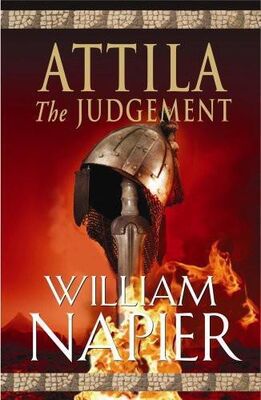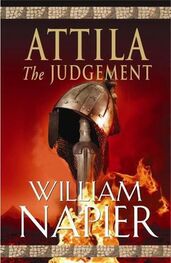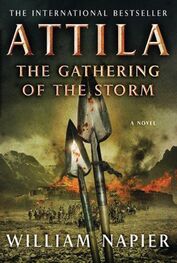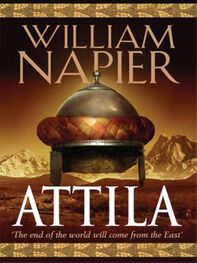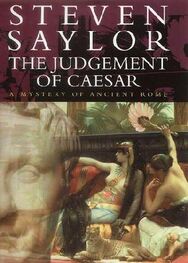Everything in the human world must vanish and nothing shall remain, though some there are who cannot change but are caught in time like insects in amber, trapped and killed there in its bright, clear, mindless gum, for ever loyal to a world they do not realise has gone. Such was the last and noblest Roman of them all…
The People are moving on, over the endless plains, stumbling in the cracked earth, about their covered ears the ancient songs of penitence and ash. Songs of grief and the graveside, the young buried before the old, children buried by their parents, and sorrow immeasurable at the right way of nature overturned by war and famine and pestilence. Broken temples, falling towers, clouds of brickdust, bricks coloured like dried blood, hard-baked in the ancient ovens of Babylon, Nineveh and Tyre…
They will come at last to a green valley, those pestilence-stricken multitudes, the Angel of History always at their back, harrying them, her sword blazing cruel and bright as the sword of the cherubim at the gates of Eden. They will look out on that pleasant valley of quiet streams and pastures, and they will begin to build again. Oh, the pity of it, and the grandeur.
The very stone of their building destined to fall again, their house never safe, their building never done, they will never know rest from heaven’s weathering. Their buildings will always fall, they will always build again, they will never surrender. They will never stop wandering, searching, over the endless plains, a storm that will not cease. It is mankind itself that is the storm, god-driven, god-haunted mankind, most pitiful, most magnificent of all creation.
They will never despair, though their proudest towers are burned to ashes, though their cities are inundated by the waters of the deep, though plague and famine encompass them round, though the sun burn them by day and the frost chill them by night, though the day holds its labours and the night its terrors, though they are but so many small, weak, naked, biped creatures, so many little parcels of mortal flesh, and death walks beside them daily. They will never lose hope, walking on resolute into the coming storm which is their own reflection, unbowed, undismayed, undefeated. They were made to suffer and to endure, to fall and to triumph, and never to surrender.
Among all the wonders of the earth, most wonderful is man. So I salute him, recognising him as made by the very hand of the Living God, in the tragedy of his fate and in the greatness of his heart.
Hic finis Historiae Prisci Panii, Anno Domini 488
List of the Principal Place Names Mentioned in the Text, with their Modern Equivalents
Modern equivalents marked with an*asterisk are approximations only
Adrianople – Edirne, Thrace, European Turkey
Aemona – Ljubljana, Slovenia
Altai Mountains – mountain range in western Mongolia, sacred to the Huns and to many other peoples
Aquileia – present-day city dates only from Middle Ages
Aquincum – Budapest
Argentoratum – Strasbourg
Augusta Treverorum – Trier
Aureliana – Orleans
Azimuntium – in Thrace, precise location unknown
Bononia – Bologna
Britain – England and Wales
Burdigala – Bordeaux
Cameracum – Cambrai
Carbonarian Forest – the Ardennes*
Carnuntum – Petronell, Austria*
Carthago Nova – Cartagena, Spain
Catalaunian Fields – near Chalons in Champagne,
France, precise location unknown
Cisalpine Gaul – Lombardy
Colonia Agrippina – Cologne
Constantinople (also Byzantium) – Istanbul
Corduba – Cordova
Dacia – Romania
Dumnonia – Devon
Dyrrachium – Durres, Albania
Euxine Sea – the Black Sea
Fiorentia – Florence
Gades – Cadiz
Gallia Narbonensis – southern France*
Gaul – France
Gessoriacum – Boulogne
Hungvar – the Hungarian plain
Illyricum – Croatia/Bosnia/Serbia/Albania*
Isca Dumnoniorum, also Esca – Exeter
Lauriacum – Enns, Austria
Leptis Magna – Labda, Libya
Londinium – London
Lutetia – Paris
Maeotis Palus – the Sea of Azov
Marcianople – Devnya, Bulgaria
Margus – Pozarevac, Serbia
Massilia – Marseilles
Mauretania – Morocco*
Mediolanum – Milan
Mediomatrice – Metz
Mincius – River Mincio, Northern Italy
Moesia – northern Bulgaria/Macedonia*
Moguntiacum – Mainz
Mosa – River Meuse
Naissus – Nis
Narbo – Narbonne
Neapolis – Naples
Noricum – Austria*
Padus – River Po
Panium – a humble and unremarked little town in Thrace
Pannonia – Hungary*
Parthia – Persia, Iran*
Philippopolis – Plovdiv, Bulgaria
Ratiaria – Archar, Bulgaria*
Rhaetia – Switzerland
Rhemi – Rheims
Sardica – Sofia, Bulgaria
Scythia – Russia, Ukraine*, Kazakhstan*, and all points east
Sequana – River Seine
Singidunum – Belgrade
Sirmium – Sremska Mitrovica, Serbia
Tanais – River Don
Tingis – Tangier
Tolosa – Toulouse
Tornacum – Tournai
Trajanopolis – Maroneia, Greece*
Utus – River Vit, Bulgaria
Vangiones – Worms
Viminacium – Kostolac, Serbia
